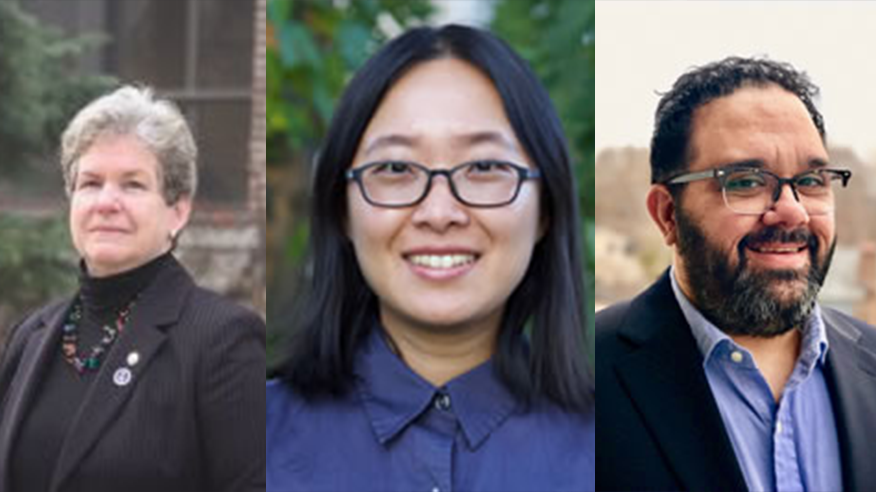Dr. Patricia Rogers, WSU provost and senior vice president of academic affairs, has been chosen as one of 32 academic leaders from across the country to participate in the Association of Chief Academic Officers’ Digital Fellows Program. Supported by the Bill & Melinda Gates Foundation, the program is designed to provide critical information, resources, and support to help faculty understand and adopt high quality digital courseware that personalizes learning and leads to significant gains in undergraduate engagement, retention, and graduation.
As part of Winona State’s implementation of the program, it has established its own Digital Faculty Fellows Program, which asks faculty to consider the use of digital coursework and resources within gateway courses on campus. To be considered, faculty submitted proposals identifying types of digital courseware/resources they wanted to work with, as well as how students in gateway courses could benefit.
From those proposals, two faculty were selected as WSU’s Digital Faculty Fellows:
Dr. Gregory Richard, assistant professor of history and legal studies, will implement CogBooks courseware into the online course, HIST 151: United States History Since 1865. Utilizing several different tools to offer students an adaptive experience, CogBooks implements an algorithm-based adaptive sequence involving repetition, adaptive assessment, and integrated learning networks. Through this process, students are provided with a fluid learning experience based on previously learned knowledge.
Dr. Pingping Zhang, assistant professor of mathematics and statistics, will enhance her existing use of the Assessment and Learning in Knowledge Spaces (ALEKS) adaptive learning system in MATH 115: College Algebra by integrating evidence-based video tutorials as supplemental resources. ALEKS utilizes adaptive questioning to quickly and accurately determine the concepts that a student does and does not know, and uses that information to develop an individually based learning program for each. By adding this series of videos, she will address two common challenges: insufficient explanations for students with weaker backgrounds, and too few connections among different concepts.
Drs. Richard and Zhang plan to implement these projects during summer and fall terms. They also plan to travel to the July gathering of ACAO Digital Fellows to present their projects and hear from other faculty from around the country. Once implemented, they will present their findings to their WSU colleagues, and possibly beyond, with the hope of encouraging other faculty to consider digital resources in their coursework.
For more information on WSU’s Digital Faculty Fellows Program, visit wsu.mn/digital-fellows.


